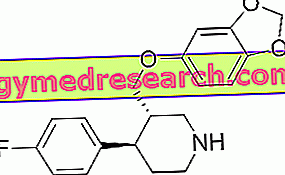Intramural fibroma
Among the uterine myomas there is the intramural fibroma, a benign tumor that develops around the uterine wall, causing a change in the structure and volume of the uterus. More precisely, while subserosal fibroma affects the outer uterine wall, the intramural myoma grows in the thickness of the wall itself; it is therefore defined as "intramural" precisely because its location is intraparietal.
Incidence
Generally, women of childbearing age are the "favorite" targets for intramural fibroids. This category of tumors tends to remain a benign form: only in rare cases, intramural fibroids degenerate into cancer (malignant tumor).
Structure
Intramural fibroids can be very small, but they can also undergo a substantial enlargement: in the latter case, the gynecologist may consider the possibility of subjecting the patient to surgery for surgical excision of the tumor.
Symptoms
Most often, intramural fibroids are asymptomatic and as such do not involve symptoms in women: not surprisingly, many fibroids are diagnosed randomly during a normal follow-up visit.
When, on the other hand, intramural fibroma implies consequences, the woman could complain of metrorrhagia (unexpected and painful bleeding in the inter-period), in addition to polymenorrhea associated with anemia and abdominal pain. Metrorrhagia is a frequent event if the intramural tumor causes ulceration. Statistics have shown that most women with intramural fibroma also report constipation, abdominal pain and pain during intercourse (dyspareunia).
This type of benign tumors could cause abnormal contractions at the time of delivery; in some women, the presence of an intramural fibroma in pregnancy has favored the premature birth of the baby, due to the continuous contractions to which the uterus is subjected.
In some women with intramural fibroma there was a difficulty in getting pregnant and a greater probability of spontaneous abortions; in some rare cases, the woman may experience symptoms of infertility (she cannot complete the pregnancy). It should be emphasized that "infertility" is not synonymous with "sterility": a sterile woman is incapable of conceiving, while in infertility the woman manages to get pregnant, but is not able to carry the pregnancy to fruition.
Care
For the resolution of the intramural fibroma, the gynecologist can surgically remove the tumor, or advise to undergo embolization or thermoablation (destruction of the tumor by heat). In mild cases, the doctor prescribes a hormone-based pharmacological treatment for the patient.
Summary
Disease | Intramural fibroma |
Description | Benign tumor that develops in the outer wall of the uterus |
Incidence | Women of childbearing age |
Diagnosis | Intramural tumors are often diagnosed by chance |
symptomatology | Often, intramural fibroids are asymptomatic; if the extension is consistent, they could cause abdominal pain, metrorrhagia, polymenorrhea, anemia, ulceration |
Rare cases | Infertility, pre-term birth, spontaneous abortions |
Therapies that eliminate intramural fibroma | Surgery, embolization, thermal ablation, hormonal drug treatment |



